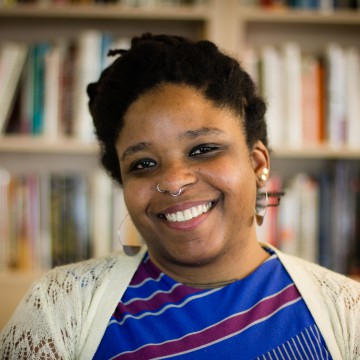On Love and Justice
July 12, 2016 1 CommentThis weekend I attended CommonBound 2016, the bi-annual conference of the New Economy Coalition (NEC), “…a [160-member] network of organizations imagining and building a future where people, communities, and ecosystems thrive. Together, we are creating deep change in our economy and politics—placing power in the hands of people and uprooting legacies of harm—so that a fundamentally new system can take root.”
As one might imagine given the mission, the conference was attended by people working on a wide range of projects from public engagement, participatory budgeting, and environmental sustainability to cooperatives, reparations, community land trusts, fossil fuel divestment and more. The 900 attendees were all in some way engaged in doing the very important work of organizing, shifting culture, developing alternative institutions and creative solutions, writing, resisting, and fundraising. All towards a goal of a society that is more just, more democratic, and more sustainable. NEC itself is fast becoming a network of networks engaging groups in the cooperative movement, movement for black lives, labor movement, student divestment network, environmental movement and more. Held in Buffalo, NY, the conference had all the makings of a pivotal moment in movement history, where a true intersectional approach to changing society for the better could be nurtured. The opportunities for significant connections and collaborations to develop were endless.
Unfortunately however, the conference was taking place against the backdrop of a week of pain, trauma, and violence as our nation and the world witnessed the murders of three innocent, unarmed or legally-armed black men by police officers as well as the shooting of 11 police officers in Dallas. Five of the officers succumbed to their injuries. As cities across the world erupted in protest, many conference attendees felt a sense of dissonance, of extreme pain and distraction. Although the conference did address systemic racism through many of the workshops, plenaries and network gatherings for some, the need to be with our communities made it difficult to be present.
Unable to go home, Black conference attendees began checking in with each other, even those they didn’t know. Asking each other how they were feeling. Engaging each other in long, deep conversations. Supporting each other in sitting out sessions that felt too heady or too big picture for what they were feeling at the moment. We realized that for the few days that we were in Buffalo, we could be each other’s community. We could act with love and solidarity for people who we knew were experiencing something similar to ourselves.
As the conference drew to a close there were discussions of what those of us who are working towards a more just, democratic, and sustainable society saw as opportunities and challenges to our leadership, organizations, and networks. The conversation turned to the shame, fear, and guilt that we can feel as organizers and change makers because we feel we aren’t doing enough, we aren’t fulfilling our myriad responsibilities and we can’t be sure that the world will be better off for our efforts. As I listened to the conversations I wondered, what do we really need to make a significant change in the way we view ourselves as change-makers, the way our organizations function and the way we effect change at a large scale. I could not stop thinking about the quote from Dr. King:
“Power without love is reckless and abusive, and love without power is sentimental and anemic. Power at its best is love implementing the demands of justice, and justice at its best is power correcting everything that stands against love.”
This quote resonates deeply with our collaborative lens here at IISC and provides such clarity for our approach as we face the abuse of power, incredible injustice and a seeming forgetting of how to love. It is funny how our ancestors are always speaking to us…
So now I’m asking myself, what is the love that implements the demands of justice and how do we find it and cultivate it at the levels of self, community, and society? What does it look like? How do we practice it? I’m going to spend some time reflecting on that question over my next few posts. I’m on a search for love. I hope that you’ll join me.

“Power without love is reckless and abusive, and love without power is sentimental and anemic. Power at its best is love implementing the demands of justice, and justice at its best is power correcting everything that stands against love.” – Dr. Martin Luther King, Jr.

1 Comment
Beautiful, Aisha. Thank you for this post. After our exchange the other day about CommonBound, I stumbled on this quote from Donella Meadows in Limits to Growth: The 30 Year Update (written in 2004, and albeit lacking an explicit racial analysis): “One is not allowed in the industrial culture to speak about love, except in the most romantic and trivial sense of the word. Anyone who calls upon the capacity of people to practice brotherly and sisterly love, love of humanity as a whole, love of nature and of our nurturing planet, is more likely to be ridiculed than to be taken seriously. The deepest difference between optimists and pessimists is their position in the debate about whether human beings are able to operate collectively from a basis of love. In a society that systematically develops individualism, competitiveness, and short-term focus, the pessimists are in the vast majority.” This quote caught my eye because of the references to love as being directly tied to “sustainability,” which she further fleshes out in the chapter by talking about the underdeveloped human capacities of “visioning, networking, truth-telling, and learning.” And I got to thinking again about “creating and holding space” – to explore and deepen these capacities, to consider and live into your powerful questions above. And I’m sitting with it all. Thank you.